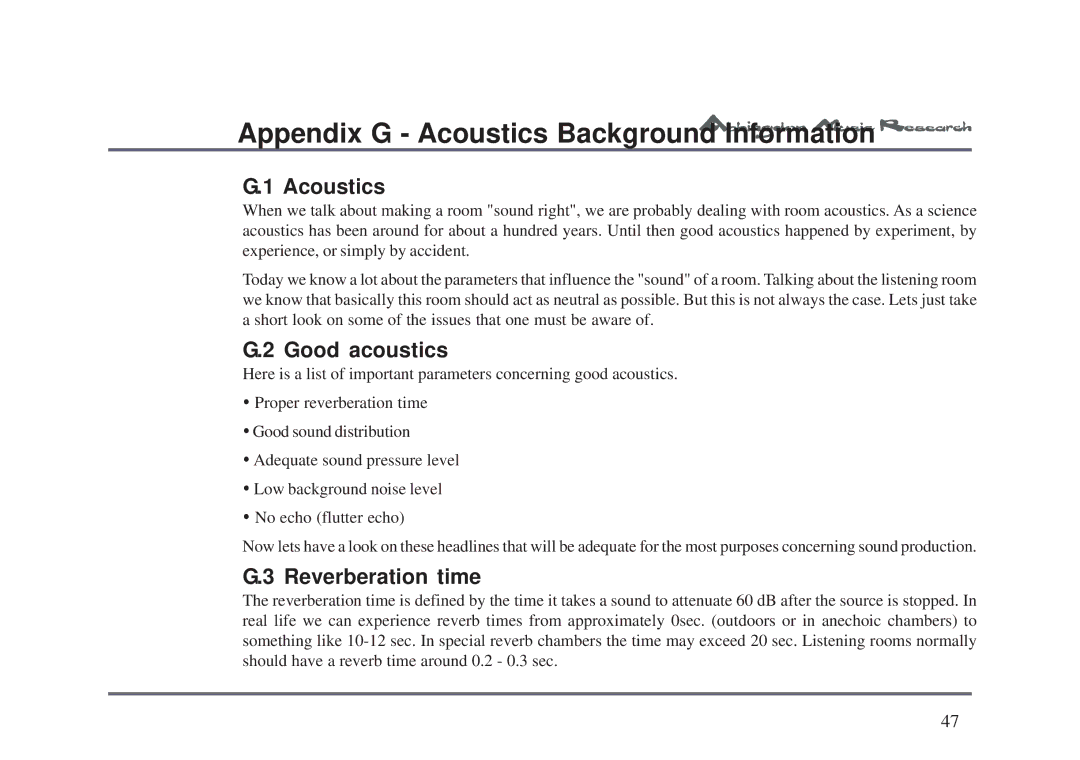
Appendix G - Acoustics Background In formation
formation 






G.1 Acoustics
When we talk about making a room "sound right", we are probably dealing with room acoustics. As a science acoustics has been around for about a hundred years. Until then good acoustics happened by experiment, by experience, or simply by accident.
Today we know a lot about the parameters that influence the "sound" of a room. Talking about the listening room we know that basically this room should act as neutral as possible. But this is not always the case. Lets just take a short look on some of the issues that one must be aware of.
G.2 Good acoustics
Here is a list of important parameters concerning good acoustics.
yProper reverberation time
yGood sound distribution
yAdequate sound pressure level
yLow background noise level
yNo echo (flutter echo)
Now lets have a look on these headlines that will be adequate for the most purposes concerning sound production.
G.3 Reverberation time
The reverberation time is defined by the time it takes a sound to attenuate 60 dB after the source is stopped. In real life we can experience reverb times from approximately 0sec. (outdoors or in anechoic chambers) to something like
47
